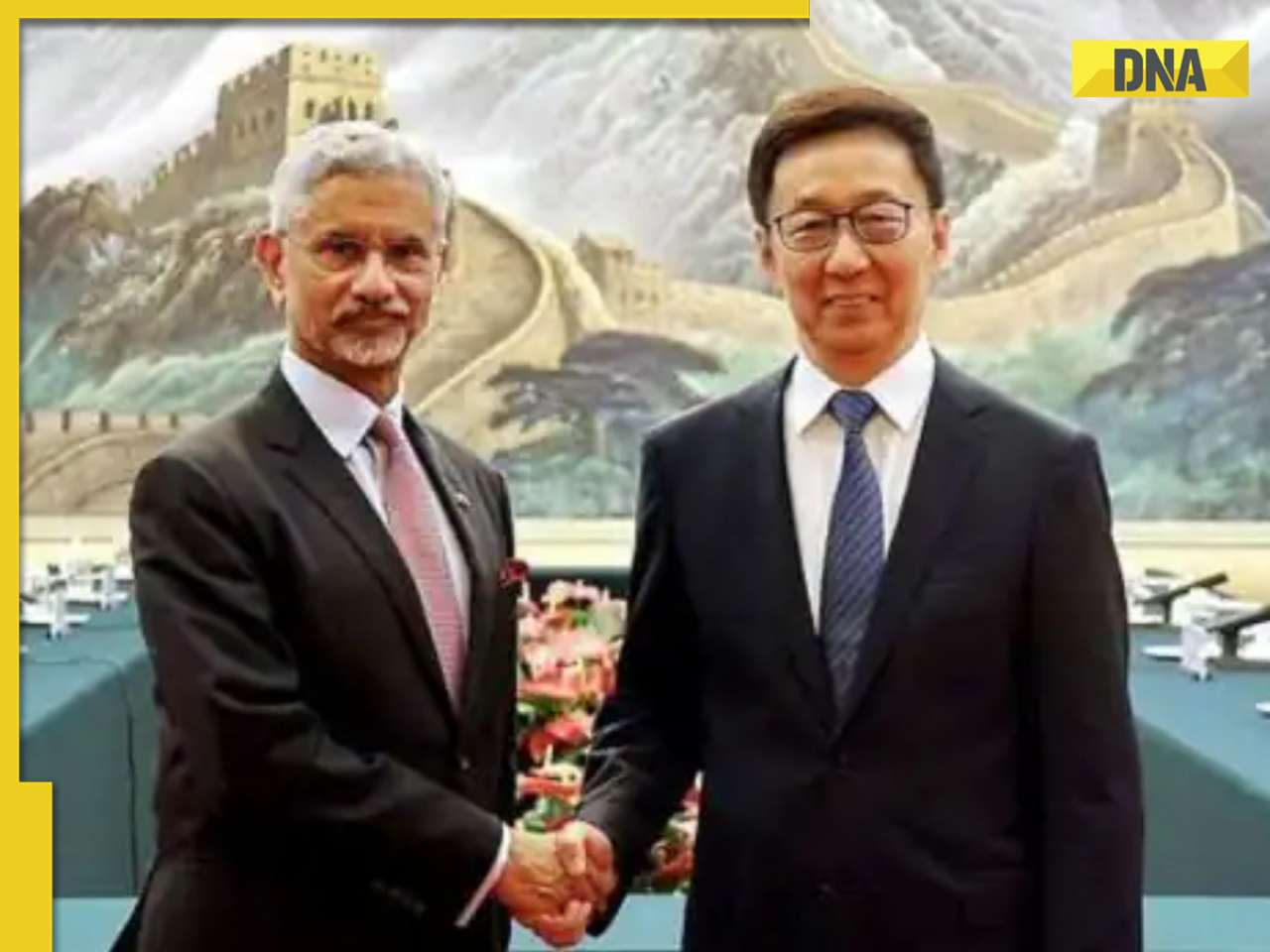Since 1979, the relationship between Iran and Israel has mostly deteriorated. Iran’s Islamist leaders believe that Israel has ‘illegitimately’ taken over Muslim and Arab lands, forcing Palestinians to flee their homeland.
Early on Thursday (October 3), Israel bombed central Beirut and killed at least six people after its forces suffered their deadliest day on the Lebanese front in a year of clashes against Iran-backed armed group Hezbollah, even as the Israeli Defence Forces (IDF) said in a post on X on Thursday that the head of the Hamas government in Gaza, Rawhi Mushtaha, was one of three killed in airstrikes that Israel had carried out three months ago, according to media reports.
Israel had pressed forward on two fronts on Wednesday (October 2), pursuing a ground incursion into Lebanon against Hezbollah that left eight Israeli soldiers dead and conducting strikes in Gaza that killed dozens, including children. With Israel promising retaliatory strikes against Iran’s ballistic missile attack on Tuesday, the region braced for a further escalation of the conflict. Iran had launched dozens of missiles into Israel on Tuesday night in an escalation of conflict that is pushing the Middle East closer to a regional war.
Since 1979, the relationship between Iran and Israel has mostly deteriorated. With Iran’s new Islamist government adopting a mixed cauldron of beliefs, including strong anti-Western and anti-Semitic views, besides support for radical movements in the Arab world tensions between the two countries have snowballed over the years.
In this view, Israel was seen as a base for Western influence. Zionism, the idea of creating a Jewish homeland, was thought of as imperialism—trying to spread power and control, similar to how old empires did. During that time, many Arab governments did not accept Israel as a Jewish state. Radicals, or extreme groups, who opposed Egypt’s peace deal with Israel, formed a group called the Rejectionist Front. Today, Iran calls it the Resistance Front, which is a modern version of that earlier group.
Over the years, many Arab countries have started normalizing relations with Israel, even though Israel has not reached a two-state solution agreement with the Palestinians—creating two separate countries—one for Israelis and one for Palestinians, aiming for peace and mutual recognition between them. This trend raises the question of what may ease the hostility between Iran and Israel, which could also help reduce Iran’s issues with the US and other Western countries.
Iran’s Islamist leaders believe that Israel has ‘illegitimately’ taken over Muslim and Arab lands, forcing Palestinians to flee their homeland. They believe Israel should become a state where Muslims and Jews live together equally, without ties to any specific religion. Some Iranian officials have expressed this view in ways that Israel sees as threatening, such as when former president Mahmoud Ahmadinejad talked about erasing Israel from history, quoting Ayatollah Khomeini, the leader of the 1979 revolution.
The 1979 revolution in Iran was a major event where the Shah, Iran’s king, was overthrown. It led to the establishment of an Islamic Republic under Ayatollah Khomeini, shifting Iran from a monarchy to a religious-based government, changing the country’s political and social landscape significantly. However, not everyone in Iran shares the same view. Some moderate and reformist groups recognize Israel’s existence and its right to exist alongside a Palestinian state.
Many of Iran’s actions in the Middle East since the 1979 revolution come from its beliefs and opposition to Israel. For instance, Iran helped create Hezbollah in Lebanon after Israel’s invasion in 1982. There have been tit-for-tat assassinations and attacks by Iran and its allies targeting Israeli and Jewish civilians. However, Israel-Iran relations are also influenced by power struggles and competition between the two countries that existed before the revolution.
By the mid-1970s, the Shah decided to develop a civilian nuclear programme. This could have ended Israel’s unspoken monopoly on nuclear weapons in the Middle East. With a flourishing economy and a burgeoning military, Iran was turning into a crucial commercial and security partner for the US in the Persian Gulf with the potential of becoming a rival of Israel. Some in Tehran believed that US frustration with the Shah for supporting high oil prices after the 1973 Arab-Israeli war was influenced by Israeli lobbying.
After the 1979 revolution, Iran became less important to Israel and America. Despite this, Israel persuaded the Reagan Administration to secretly sell arms to Iran during the 1980s Iran-Iraq war, seeing Iraq as a bigger threat.
Soviet Collapse & Israel’s Arab Strategy
By 1987, neither Iraq nor its ally, the Soviet Union, was considered a major threat anymore and Iran had been weakened by its war with Iraq. Israel changed its strategy from focusing on distant states (non-Arab countries on the periphery of the Middle East, such as Iran and Turkey) to the ‘Arab option’, aiming to strengthen its 1979 peace agreement with Egypt.
Israel viewed opposing Iran as a way to encourage growing cooperation between Arab countries and Israel. So, Israel decided to keep Iran isolated and weaken its influence in the region. Israel consistently opposed any positive Western responses to Iran showing moderation during the presidencies of Hashemi Rafsanjani, Mohammad Khatami and Hassan Rouhani. Instead, Israel supported a US strategy to contain both Iran and Iraq in the 1990s and pushed for increased US sanctions on Iran.
Israel focussed on Iran’s nuclear programme, which, in 2002, was discovered to be more advanced than what Iran had told the International Atomic Energy Agency. As the US prepared to attack Iraq in 2003 over false claims of weapons of mass destruction, some Israeli leaders supported the idea of a US military strike on Iran.
Israel competed intensely with Iran in countries that were once part of the Soviet Union, especially in Azerbaijan, and formed an alliance with Baku (the capital of Azerbaijan) against Tehran. Iran increased its influence in regions near Israel, especially in Syria, taking advantage of the 2011 civil war.
Several factors may influence Iran’s stance on Israel. One key element is the growing acceptance of Israel by Arab countries and the establishment of normal diplomatic relations. This shift could potentially alter Iran’s approach to Israel. In the Abraham Accords, the UAE, Bahrain, Sudan and Morocco started official diplomatic relations with Israel, joining Egypt and Jordan. Saudi Arabia is also becoming more open to this idea.
Progress has slowed partly because Israel now has its most Right-wing government ever, and there is increased tension in the occupied West Bank. However, Iran cannot really stop the growing friendship between Arab countries and Israel. Its reaction to these changes has been quiet. If Iran’s ties with the West improve, it may rethink its stance against Israel. This is more likely if moderate views gain strength in Iran, possibly after the passing of supreme leader Ayatollah Ali Khamenei.
(The author of this article is an Aerospace & Defence Analyst based in Bengaluru. He is also Director of ADD Engineering Components, India, Pvt. Ltd, a subsidiary of ADD Engineering GmbH, Germany)
(Disclaimer: The views expressed above are the author's own and do not reflect those of DNA)
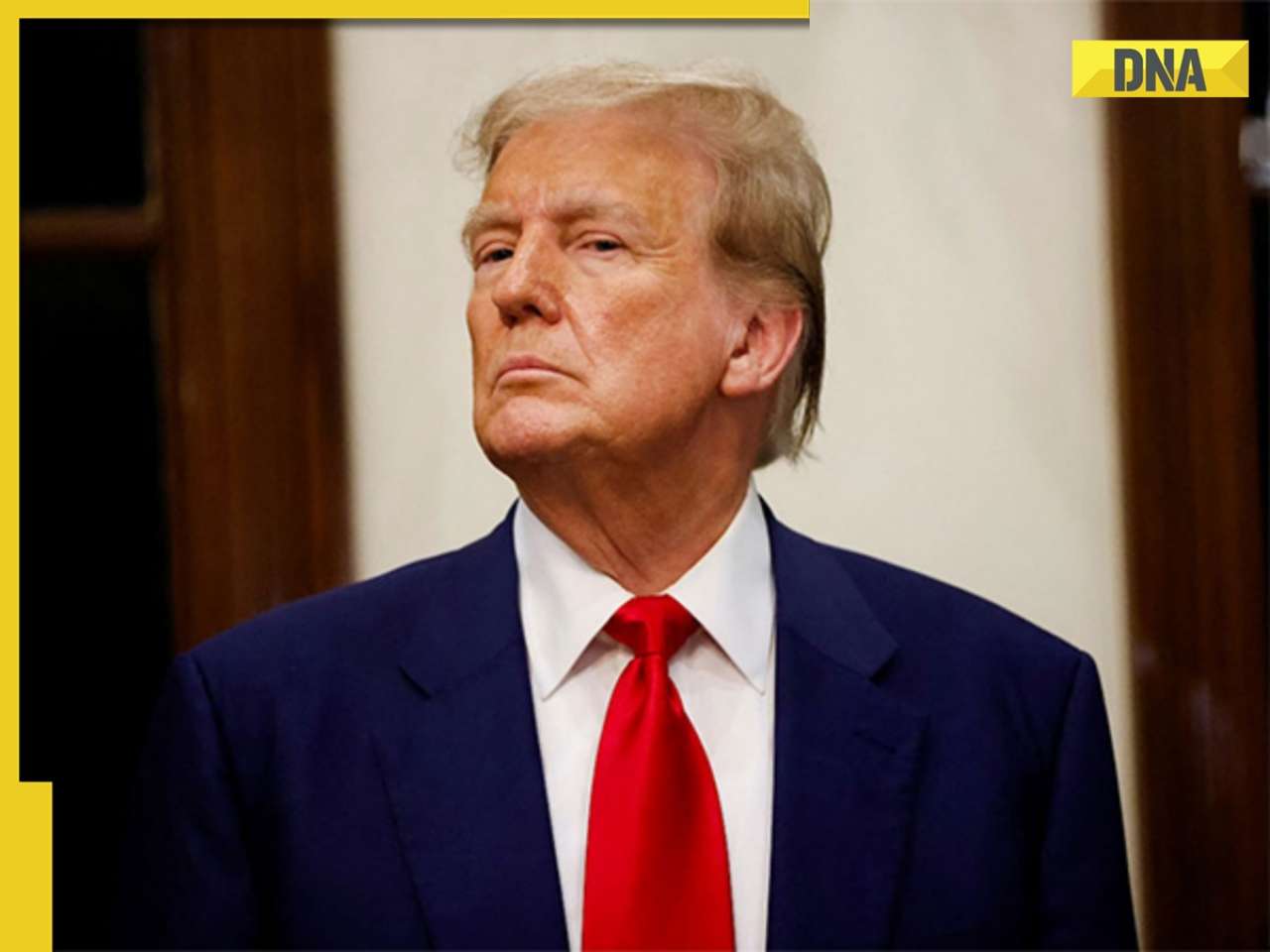 Donald Trump announces new trade deal, keeps Indonesia tariff at 19%; country to buy 50 Boeing jets
Donald Trump announces new trade deal, keeps Indonesia tariff at 19%; country to buy 50 Boeing jets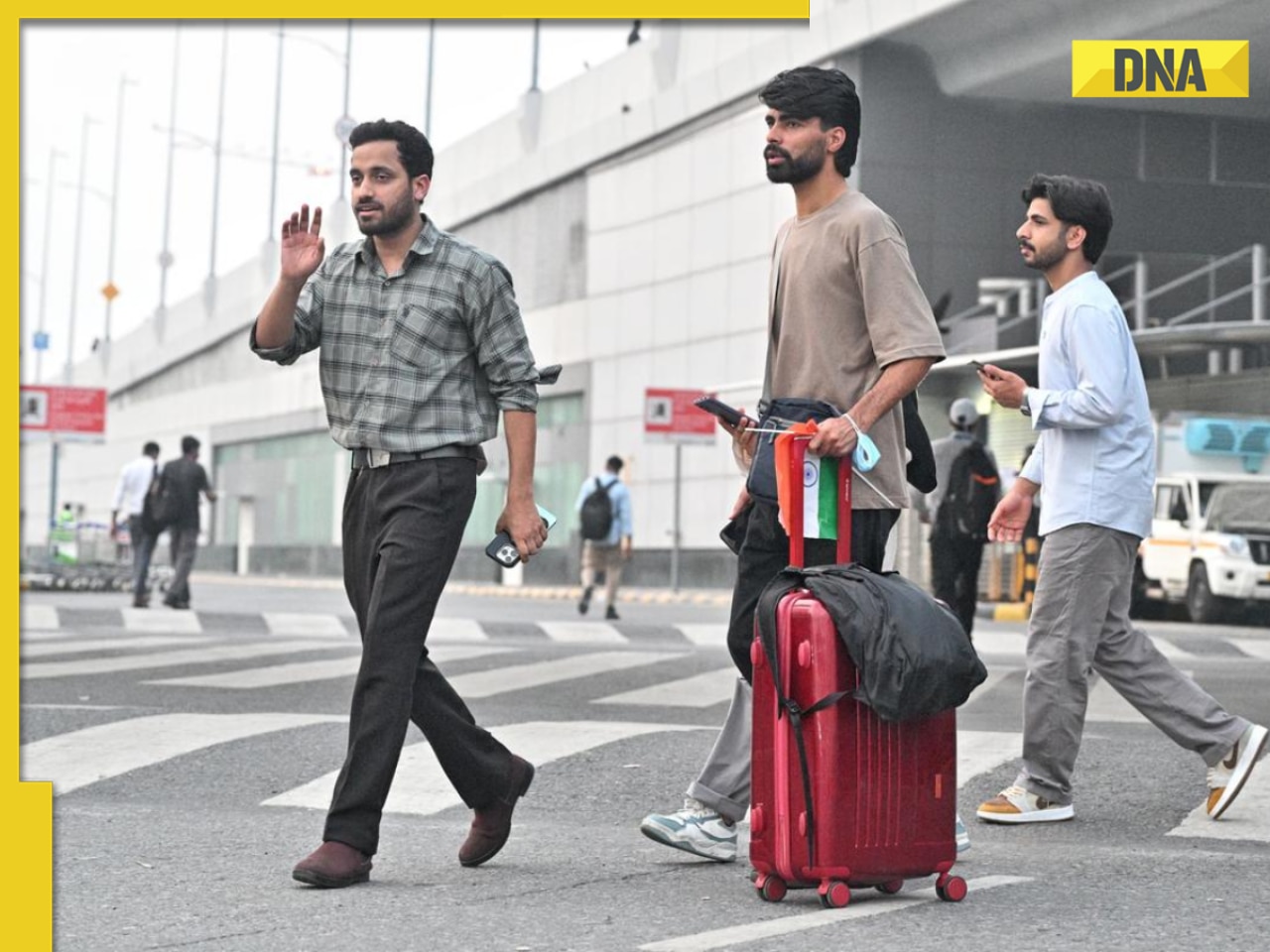 India issues fresh travel advisory, asks citizens to avoid going to THIS country: 'Carefully consider...'
India issues fresh travel advisory, asks citizens to avoid going to THIS country: 'Carefully consider...' THIS govt company in HUGE debt, defaults on bank loans worth whopping Rs...
THIS govt company in HUGE debt, defaults on bank loans worth whopping Rs... This city is world’s most student friendly, 4 Indian cities also feature in list with the most affordable city being...
This city is world’s most student friendly, 4 Indian cities also feature in list with the most affordable city being...  Tesla cars will be priced cheaper in Delhi and Mumbai than Gurugram, here’s why, check cost difference here
Tesla cars will be priced cheaper in Delhi and Mumbai than Gurugram, here’s why, check cost difference here 7 mesmerising images of star formation captured by NASA
7 mesmerising images of star formation captured by NASA What is brain fog? 7 Ways to overcome it
What is brain fog? 7 Ways to overcome it Sawan 2025: Move beyond Tip Tip Barsa Paani, this rainy season groove on these sizzling songs
Sawan 2025: Move beyond Tip Tip Barsa Paani, this rainy season groove on these sizzling songs Kang Seo‑ha to Kim Sae‑ron: K‑drama, K-pop icons we lost recently
Kang Seo‑ha to Kim Sae‑ron: K‑drama, K-pop icons we lost recently Our Golden Days, My Lovely Journey, Beyond the Bar: 8 must-watch K-dramas in August 2025
Our Golden Days, My Lovely Journey, Beyond the Bar: 8 must-watch K-dramas in August 2025 Odisha Girl Self Immolation Case: Odisha CM Announces Rs 20 Lakh Aid For Kin Of Balasore Student
Odisha Girl Self Immolation Case: Odisha CM Announces Rs 20 Lakh Aid For Kin Of Balasore Student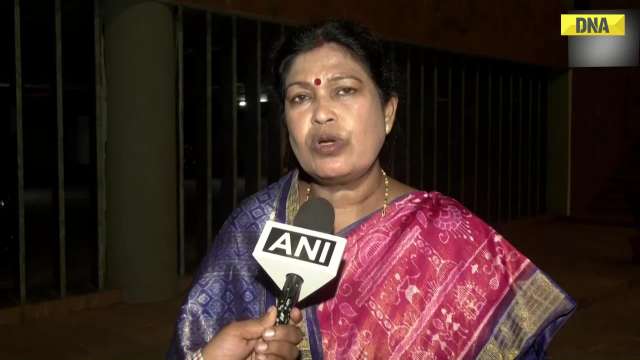 Odisha Girl Self-Immolation Case: BJD leader Slams Odisha Govt After Balasore Student Dies
Odisha Girl Self-Immolation Case: BJD leader Slams Odisha Govt After Balasore Student Dies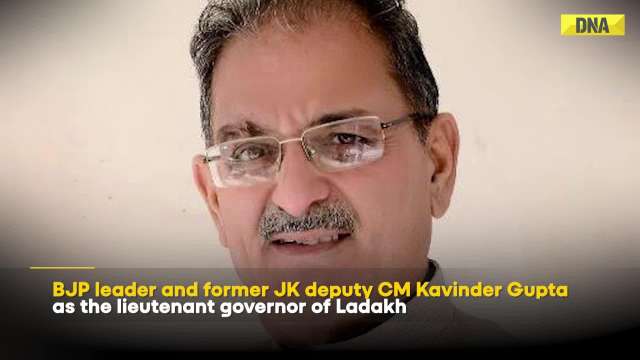 President Murmu Appoints New Governors For Haryana, Goa; Kavinder Gupta Named LG Of Ladakh
President Murmu Appoints New Governors For Haryana, Goa; Kavinder Gupta Named LG Of Ladakh Bombay Stock Exchange Receives Bomb Threat From 'Comrade Pinarayi Vijayan', '4 RDX IED In Building'
Bombay Stock Exchange Receives Bomb Threat From 'Comrade Pinarayi Vijayan', '4 RDX IED In Building' India Pakistan News: New Paramilitary Force In Pakistan Sparks Crackdown Fears
India Pakistan News: New Paramilitary Force In Pakistan Sparks Crackdown Fears THIS govt company in HUGE debt, defaults on bank loans worth whopping Rs...
THIS govt company in HUGE debt, defaults on bank loans worth whopping Rs... Tesla cars will be priced cheaper in Delhi and Mumbai than Gurugram, here’s why, check cost difference here
Tesla cars will be priced cheaper in Delhi and Mumbai than Gurugram, here’s why, check cost difference here Mukesh Ambani's Reliance's BIG win as Delhi HC directs e-commerce platforms to...
Mukesh Ambani's Reliance's BIG win as Delhi HC directs e-commerce platforms to...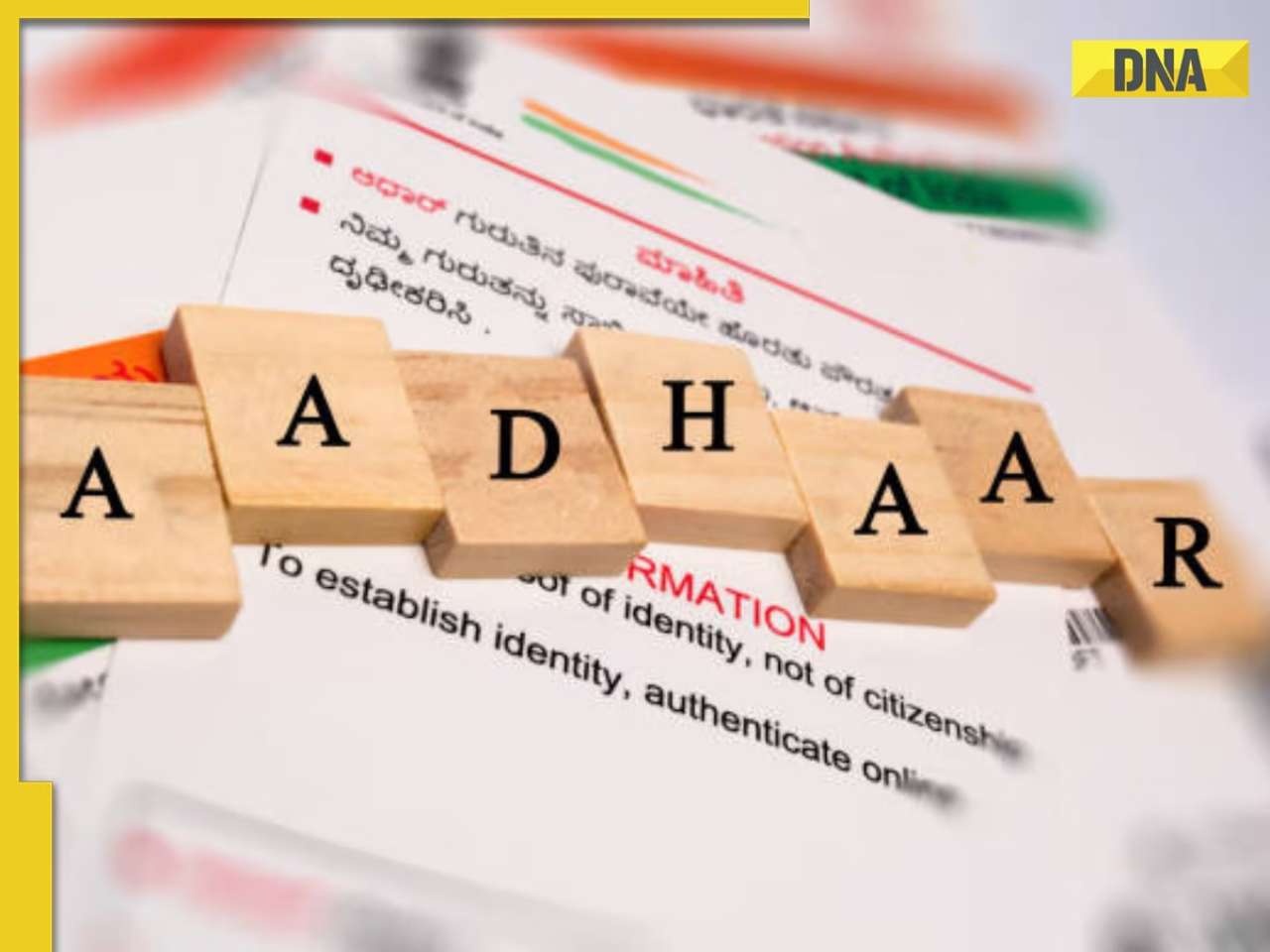 UIDAI shares BIG update on children above 7 with Aadhaar: 'To face risk of...'
UIDAI shares BIG update on children above 7 with Aadhaar: 'To face risk of...' Meet woman who started as trainee, will now become CEO of..., won major award at Cannes, she is...
Meet woman who started as trainee, will now become CEO of..., won major award at Cannes, she is...  Then and now: What Daniel Radcliffe, Emma Watson, Rupert Grint and more Harry Potter cast members doing now?
Then and now: What Daniel Radcliffe, Emma Watson, Rupert Grint and more Harry Potter cast members doing now? Which Visa lets you travel to multiple countries? Learn about Visas that fit your needs
Which Visa lets you travel to multiple countries? Learn about Visas that fit your needs Chhoriyan Chali Gaon contestants list out: Anita Hassanandani, Aishwarya Khare, and others join Rannvijay Singha's show
Chhoriyan Chali Gaon contestants list out: Anita Hassanandani, Aishwarya Khare, and others join Rannvijay Singha's show Laapataa Ladies' Pratibha Ranta returns in Revolutionaries with Bhuvam Bham, Rohit Saraf: All you need to know about Nikkhil Advani's series
Laapataa Ladies' Pratibha Ranta returns in Revolutionaries with Bhuvam Bham, Rohit Saraf: All you need to know about Nikkhil Advani's series Ananya Panday's vacation photos go viral: A peek into her sun-kissed moments, beach outfits, and carefree vibes
Ananya Panday's vacation photos go viral: A peek into her sun-kissed moments, beach outfits, and carefree vibes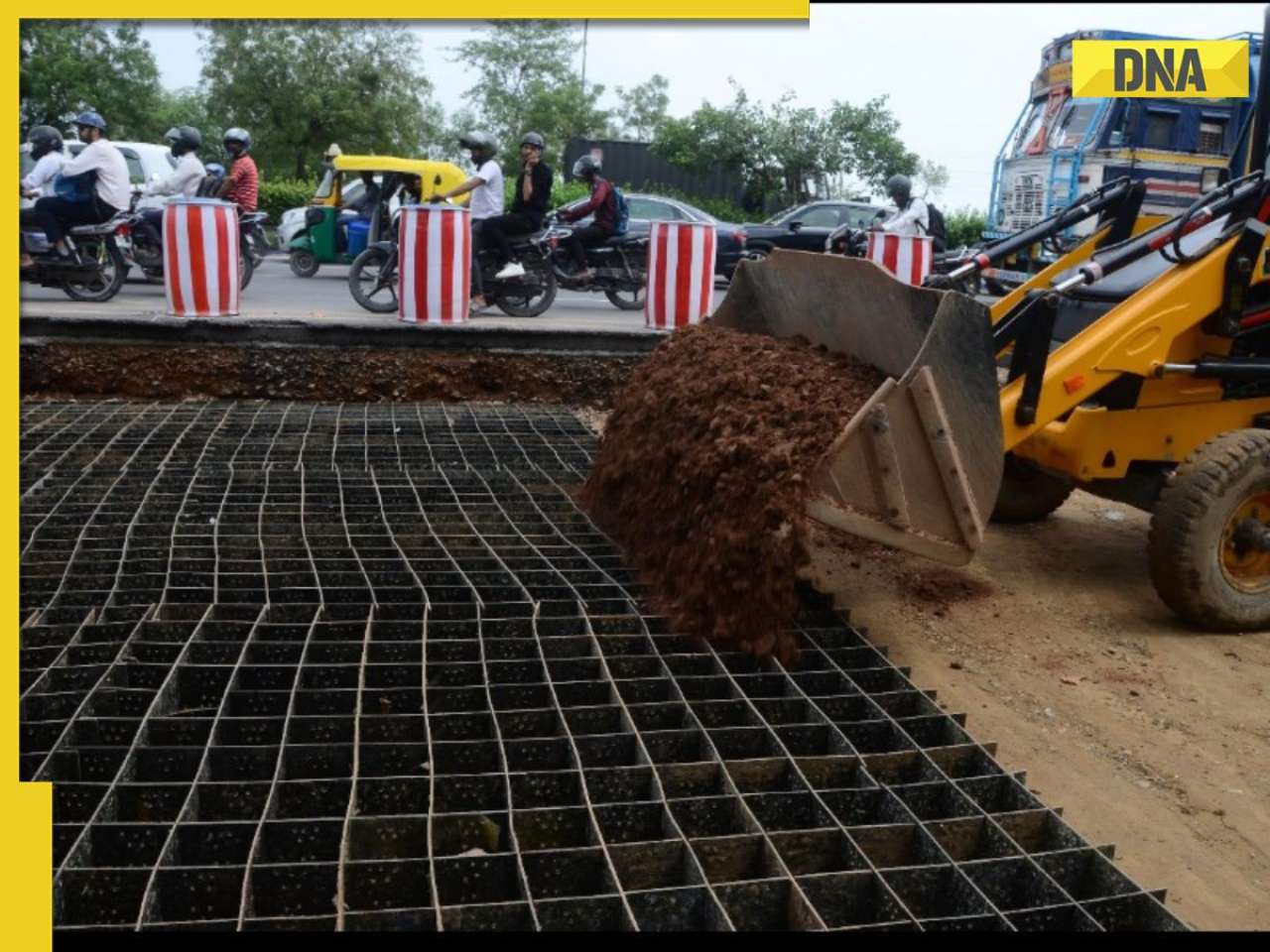 India's first plastic road to be built with Geocell Technology in..., know all about this sustainable initiative
India's first plastic road to be built with Geocell Technology in..., know all about this sustainable initiative  Golden Temple receives bomb threat again, second RDX email in 24 hours, probe underway
Golden Temple receives bomb threat again, second RDX email in 24 hours, probe underway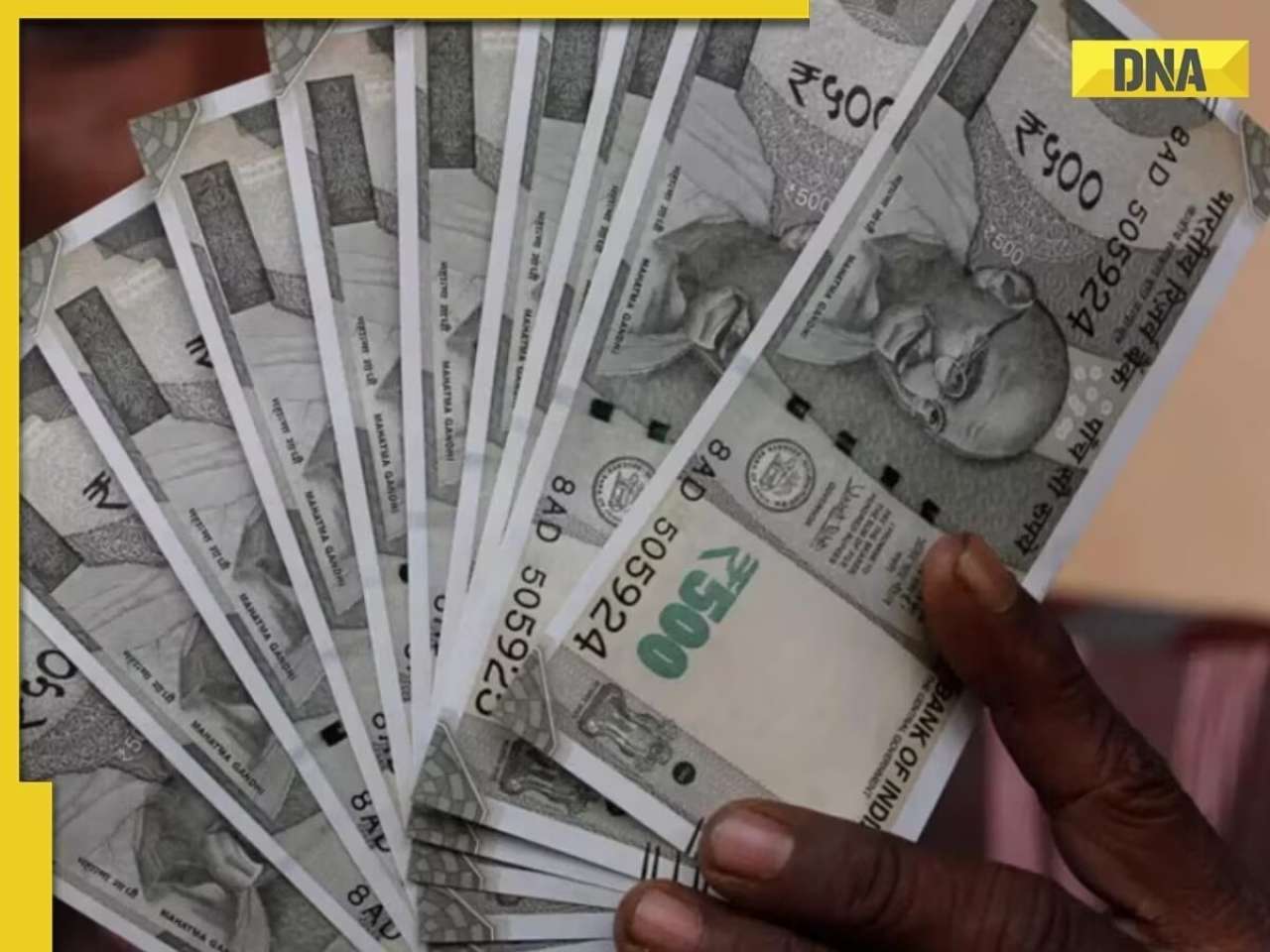 Rs 10000000000: Indians losing huge amount of money every month due to...
Rs 10000000000: Indians losing huge amount of money every month due to... DNA Verified: Samosa, jalebi, other Indian snacks to carry health warning labels? Know the truth here
DNA Verified: Samosa, jalebi, other Indian snacks to carry health warning labels? Know the truth here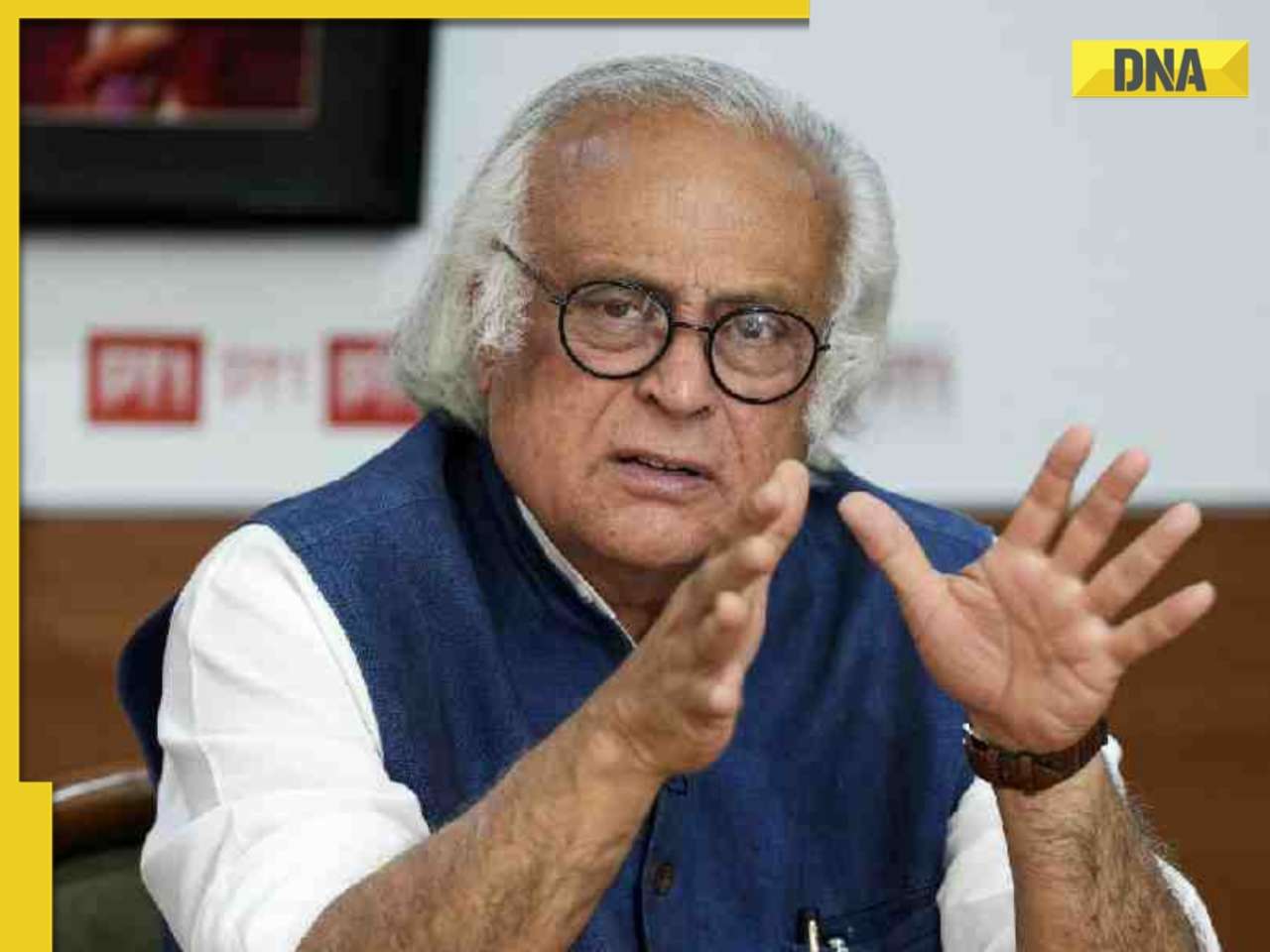 '65 days, 22 times’: Congress leader Jairam Ramesh slams BJP as US President Trump again claims credit for India-Pakistan ceasefire
'65 days, 22 times’: Congress leader Jairam Ramesh slams BJP as US President Trump again claims credit for India-Pakistan ceasefire Who is IAS officer Arpit Sagar who Fined NHAI for..., served in high-ranking administrative roles, she’s from...
Who is IAS officer Arpit Sagar who Fined NHAI for..., served in high-ranking administrative roles, she’s from...  Meet woman who left high-paying job in Switzerland for UPSC exam, secured AIR...; married to IAS, she is now...
Meet woman who left high-paying job in Switzerland for UPSC exam, secured AIR...; married to IAS, she is now... Meet woman who failed in NEET, UPSC exams, later secured Rs 72 LPA job at THIS aviation giant to become the youngest...
Meet woman who failed in NEET, UPSC exams, later secured Rs 72 LPA job at THIS aviation giant to become the youngest... This auto driver speaks 7 languages, did double MA, worked in MNCs, wanted to become IAS officer then..., is now going viral for..
This auto driver speaks 7 languages, did double MA, worked in MNCs, wanted to become IAS officer then..., is now going viral for.. Meet 19-year-old boy who took family responsibilities after his father's demise, cracked JEE Main with 9 to 5 job, his AIR was..., he wants to...
Meet 19-year-old boy who took family responsibilities after his father's demise, cracked JEE Main with 9 to 5 job, his AIR was..., he wants to... This luxury car is first choice of Indians, even left BMW, Jaguar, Audi behind in sales, it is...
This luxury car is first choice of Indians, even left BMW, Jaguar, Audi behind in sales, it is... Kia India unveils Carens Clavis: Check features, design changes, price and more; bookings open on...
Kia India unveils Carens Clavis: Check features, design changes, price and more; bookings open on... Tesla CEO Elon Musk launches most affordable Cybertruck, but it costs Rs 830000 more than older version, it is worth Rs...
Tesla CEO Elon Musk launches most affordable Cybertruck, but it costs Rs 830000 more than older version, it is worth Rs... Planning to buy a Maruti Suzuki car? Prices set to rise by 4% from...
Planning to buy a Maruti Suzuki car? Prices set to rise by 4% from... Audi launches Audi RS Q8 2025 in India: Know price, specifications and unique features
Audi launches Audi RS Q8 2025 in India: Know price, specifications and unique features 




)
)
)
)
)
)
)
)
)
)
)
)
)
)
)
)
